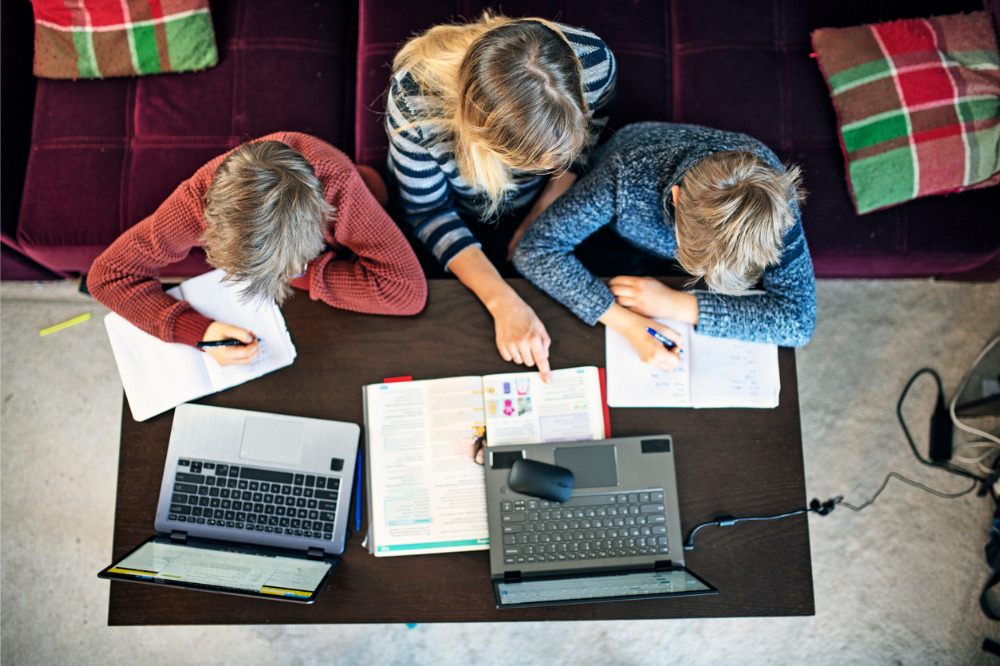
Australia has seen a marked rise in homeschooling in recent years as parents search for ways to maximise their children’s learning.
This trend was evident even before the COVID-19 pandemic temporarily shut down schools, which prompted teachers to turn to remote learning as the primary method of providing students education.
But as restrictions ease and schools begin transitioning back to face-to-face learning, some families are left wondering if continuing their children’s education at home may be a better option.
In an article for The Conversation, Christine Grové, senior lecturer and educational and developmental psychologist, lecturers Nicholas Gamble and Emily Berger, and Kelly-Ann Allen, senior lecturer at the School of Education, all from Monash University, discussed the important things parents need to consider if they are planning to homeschool their children. Here are some of them:
1. Homeschooling is different from remote learning.
The recent school closures brought about by the pandemic has prompted educators to turn to remote or distance learning. In this setting, teachers deliver the school curriculum to children at home.
However, the authors noted that there is a big difference between homeschooling and remote learning – and the distinction lies in the level of parents’ involvement.
“In homeschooling, parents have elected to meet their child’s educational needs themselves, rather than using government or other school options,” they wrote.
The experts added that homeschooling registration and monitoring requirements vary between states and territories.
2. Homeschooling requires a lot of time and effort.
For parents who are thinking of homeschooling their kids, one of the most important considerations is “their ability and desire to take on the leading role for their child’s education,” the authors wrote.
“The process of developing a homeschooling routine takes time, effort and patience. Parents may be required to submit a plan to their state education department, which, in most cases, should show an alignment between their child’s learning and the national curriculum.”
The experts added that parents may need to develop or implement a full curriculum without the resources available in schools – which poses another big challenge.
3. Will homeschooling benefit the child’s emotional, social, and psychological wellbeing?
The authors cited several reasons why families opt to homeschool their kids. These include religious or ideological grounds, practical limitations to school access, and social difficulties such as separation anxiety and bullying.
“Not all schools can and do adequately manage bullying and other unsafe situations children may be in,” they wrote. “In these instances, parents may decide to remove their child from school and homeschool their child.”
However, the experts also noted that “very little research” has been conducted on the effects of homeschooling to children who are experiencing difficulties at traditional schools.
“Parents can consider whether their child is showing ongoing signs of psychological distress such as changes in behaviour, withdrawal from others, irritability, or problems concentrating,” they wrote.
“Specialist support from a psychologist may help parents and students to understand the benefits and limitations of changing schools and homeschooling. If there are underlying social or separation anxieties involved, these issues should be addressed as they are likely to linger at home, too.”
4. Homeschooled children can thrive academically.
Several studies based on NAPLAN results have shown home-educated students score higher than state averages across every measure – and this trend continues even after the child returns to a traditional school, according to the authors.
“Children who are homeschooled may be doing well because they receive one-on-one attention,” they wrote. “Or it could be because the child’s learning is personalised, and the child has agency over their learning.”
5. Children can be socialised in both traditional and homeschooled environments.
Homeschooling does not mean that children lack the means for developing socially, according to the experts.
“Homeschooled young people can have a diverse range of social interactions with people of different ages, including adults,” they wrote.
The authors cited a recent survey of homeschooling Australian families that showed nearly half of children participated in at least one club activity, including sports. About 40% also attended at least one regular learning group, including new languages, gardening, and archaeology.
The experts wrote that most research participants also had regular “play dates with homeschooling and/or non-homeschooling families,” and that children actively participated in their community through the arts, including community theatre, bands, choirs, dance, and visual arts classes.


